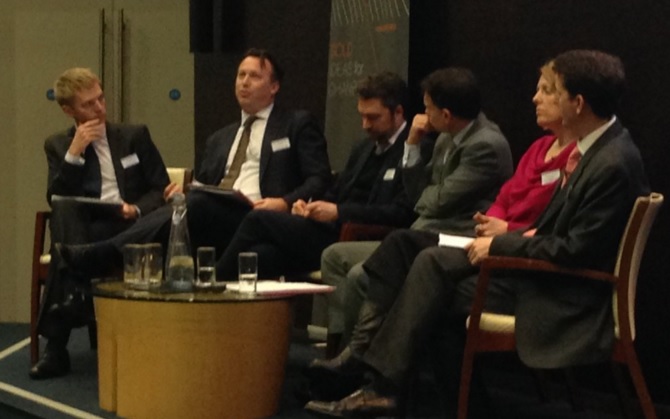The government needs to publish “an effective plan” to tackle the decarbonisation of heat and transport sectors, according to the CBI’s senior policy advisor on climate change.
Speaking at an event hosted by the Institute for Public Policy Research (IPPR) on Friday, Matt Sheldon claimed the challenge of tackling these areas lies in changing the behaviour of both industry and consumers to adopt low carbon alternatives.
“This doesn’t have the headline grabbing ‘we have to reduce our carbon intensity by 75%’ but it is more challenging. This is about changing hard-wired consumer behaviours. It’s a more devolved, nuanced, personalised approach and there’s a whole panel of policy leaders that are going to have to [send] the right signals,” he said.
This was supported by Nick Park, head of policy at Centrica, who said: “[Decarbonising] power is the easy bit. Getting people to change their behaviour in heating and transport is going to be much more challenging.
“Over the period since 1990, carbon emissions in transport sector have reduced by just 2%. It’s been very slow progress. Cars have got a lot cleaner but there are more of them driving more miles.”
Sheldon went on to say the government needed to address a whole range of issues in order to meet the targets set out by the Committee on Climate Change (CCC) in the fourth and fifth carbon budgets. As well as the need to push the energy efficiency agenda to both homeowners and house-builders, he claimed more needed to be done to increase EV infrastructure and incentivise local heat networks.
“Filling in these policy gaps and these challenges is going to be an important piece of work this year and [we need] an effective plan,” he said.
The heat and transport sectors have consistently proved to be problem areas for the Department of Energy and Climate Change (DECC), with leaked documents from Amber Rudd last year showing the energy secretary was “concerned” about the lack of progress on heat and transport.
This was supported by statements made by Rudd at a subsequent Energy and Climate Change select committee hearing in which she said: “I am concerned about the work that is being done on transport and on heat to meet the additional targets. That is why I have been writing to ministers in other departments, particularly in transport.”
This has since resulted in the formation of an inter-ministerial ‘clean growth group’ containing ministers and officials from DECC as well as the departments of transport, communities and local government, business and Defra. However, none of the details of these meetings have been made public, including who has attended them and what policies are being developed.
There is little doubt that the government could face significant repercussions if it’s fails to meet its targets, with the CCC explicitly pointing out that the changes needed to meet its requirements will require “bigger behavioural adjustments than emissions reductions to date.”
While these include reductions in emissions from electricity generation through wider use of renewables by 2020, the CCC has claimed increased take-up of electric vehicles and low carbon heat serving homes and businesses will be required.
In its summary document launched alongside the Fifth Carbon Budget, the CCC said: “It is important to commit to these changes in advance given the time required for consumer behaviours to adapt as well as time needed to develop new policies, to grow currently nascent markets and to invest in supporting infrastructure and innovation.”
In buildings, the committee says deployment of low-carbon heat will need to increase so that heat pumps and heat networks from low-carbon sources provide for around 13% of homes and over half of business demand.





